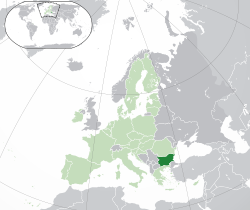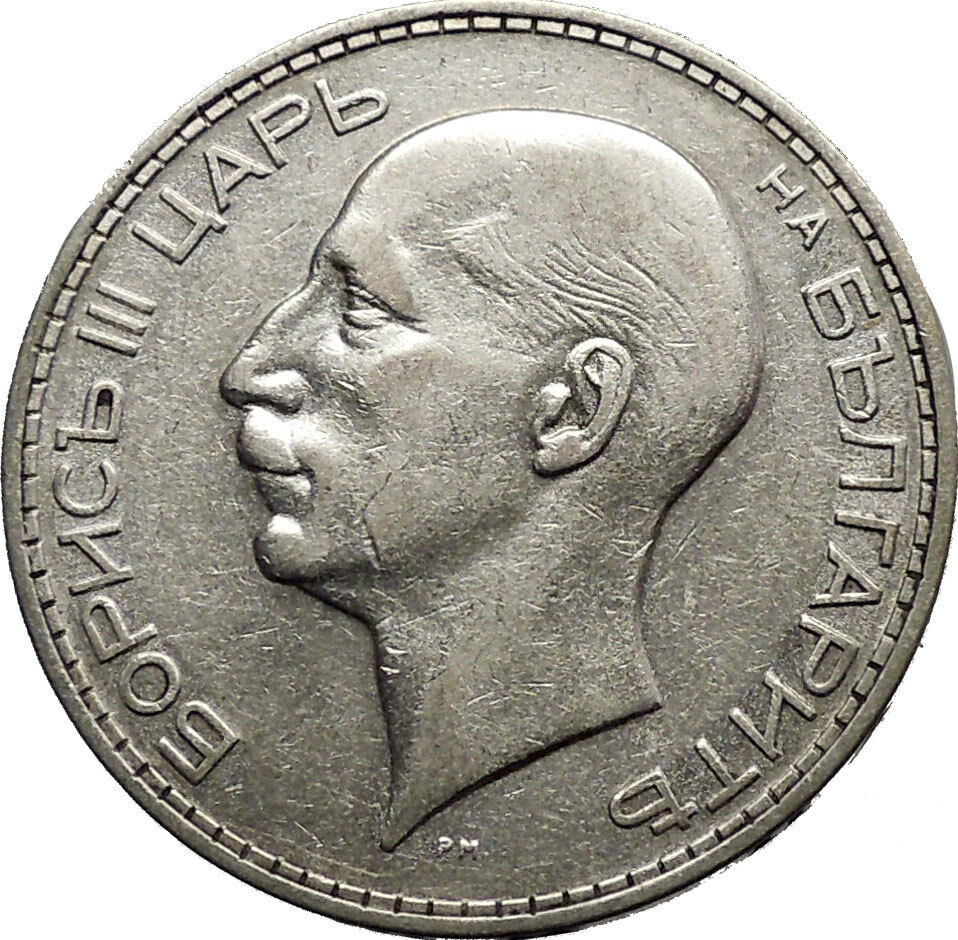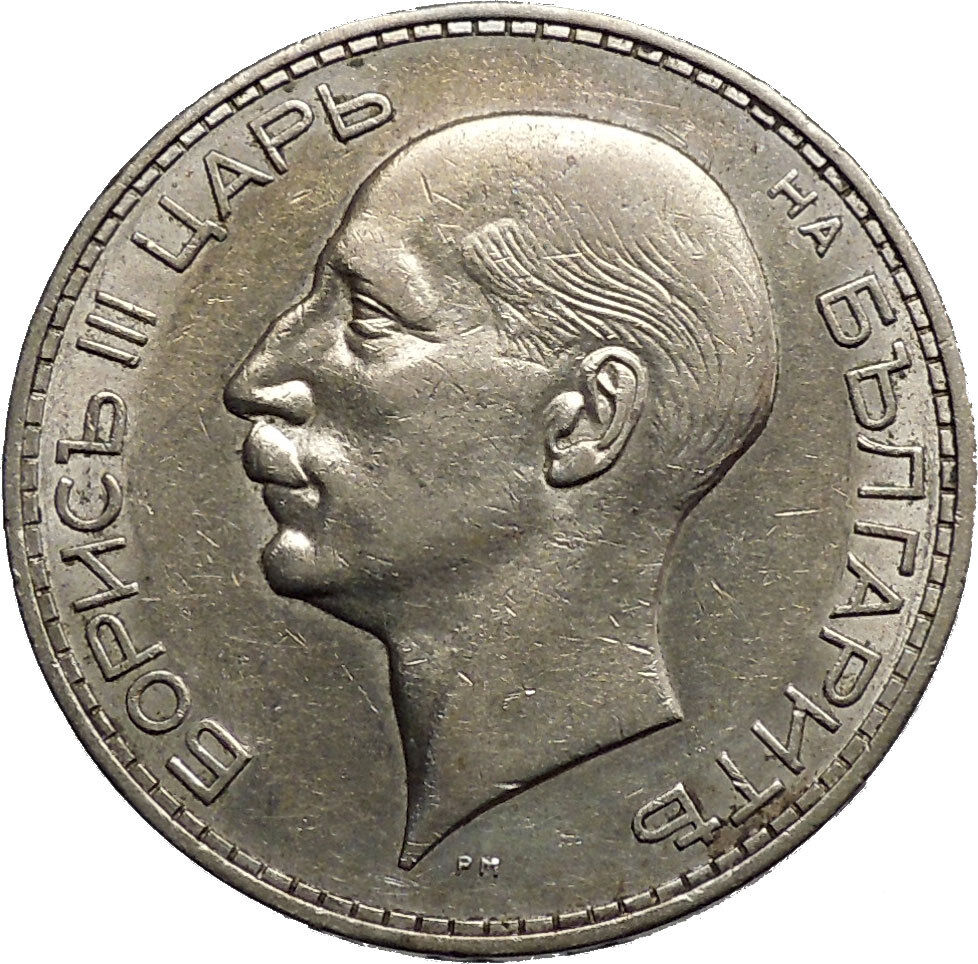|
Bulgaria
24th Summer Olympic Games, Seoul (Republic of Korea), 1988
1988 Proof Silver 10 Leva 37mm (18.70 grams) 0.640 Silver (0.3035 oz. ASW)
Reference: KM# 185 | Engraver: Chavdar Alexiev
НАРОДНА РЕПУБЛИКА БЪЛГАРИЯ, Coat-of-arms of People’s Republic of Bulgaria.
XXIV ЛЕТНИ ОЛИМПИЙСКИ ИГРИ 1988∙ 10 ЛЕВА∙, Sprinters.
You are bidding on the exact item pictured, provided with a Certificate of Authenticity and Lifetime Guarantee of Authenticity.
 The 1988 Summer Olympics (Korean: 1988년 하계 올림픽; RR: 1988nyeon Hagye Ollimpig), officially known as the Games of the XXIV Olympiad (Korean: 제24회 올림픽경기대회; RR: Je 24hoe Ollimpiggyeong-gidaehoe) and commonly known as Seoul 1988 (Korean: 서울 1988), was an international multi-sport event held from 17 September to 2 October 1988 in Seoul, South Korea. 159 nations were represented at the games by a total of 8,391 athletes (6,197 men and 2,194 women). 237 events were held and 27,221 volunteers helped to prepare the Olympics. The 1988 Summer Olympics (Korean: 1988년 하계 올림픽; RR: 1988nyeon Hagye Ollimpig), officially known as the Games of the XXIV Olympiad (Korean: 제24회 올림픽경기대회; RR: Je 24hoe Ollimpiggyeong-gidaehoe) and commonly known as Seoul 1988 (Korean: 서울 1988), was an international multi-sport event held from 17 September to 2 October 1988 in Seoul, South Korea. 159 nations were represented at the games by a total of 8,391 athletes (6,197 men and 2,194 women). 237 events were held and 27,221 volunteers helped to prepare the Olympics.
The 1988 Seoul Olympics were the second summer Olympic Games held in Asia, the first held in South Korea, and the first in a developing country. As the host country, South Korea ranked fourth overall, winning 12 gold medals and 33 medals in the competition. 11,331 media (4,978 written press and 6,353 broadcasters) showed the Games all over the world. These were the last Olympic Games of the Cold War, as well as for the Soviet Union and East Germany, as both ceased to exist before the next Olympic Games in 1992. The Soviet Union utterly dominated the medal count, winning 55 gold and 132 total medals. The results that got closest to that medal haul are China’s 48 gold medals in 2008 and USA’s 121 total medals in 2016.
Compared to the 1980 Summer Olympics (Moscow) and the 1984 Summer Olympics (Los Angeles), which were divided into two camps by ideology, the 1988 Seoul Olympics was a competition in which the boycotts virtually disappeared, although they were not completely over. North Korea boycotted the 1988 Seoul Olympics, as well as five socialist countries including Cuba, an ally of North Korea. Albania, Ethiopia, and Seychelles did not respond to the invitation sent by the IOC. Nicaragua did not participate due to athletic and financial considerations, while the expected participation of Madagascar was withdrawn for financial reasons. Nonetheless, the much larger boycotts seen in the three previous editions were avoided, resulting in the largest number of participating nations during the Cold War era, and thus regarded as the Olympics that laid the groundwork for the end of the Cold War.
For South Korea, the 1988 Olympics was a symbolic event that elevated its international image while also contributing to national pride. Only thirty-five years after the Korean War which devastated the nation, and during a decade of social unrest in South Korea, the Olympics was successfully held and became the culmination of what was deemed the “Miracle on the Han River”.
 Bulgaria (Bulgarian: България, tr. Bǎlgariya), officially the Republic of Bulgaria (Bulgarian: Република България, tr. Republika Bǎlgariya, IPA: [rɛˈpublikɐ bɐɫˈɡarijɐ]), is a country in southeastern Europe. It is bordered by Romania to the north, Serbia and Macedonia to the west, Greece and Turkey to the south, and the Black Sea to the east. With a territory of 110,994 square kilometres (42,855 sq mi), Bulgaria is Europe’s 16th-largest country. Bulgaria (Bulgarian: България, tr. Bǎlgariya), officially the Republic of Bulgaria (Bulgarian: Република България, tr. Republika Bǎlgariya, IPA: [rɛˈpublikɐ bɐɫˈɡarijɐ]), is a country in southeastern Europe. It is bordered by Romania to the north, Serbia and Macedonia to the west, Greece and Turkey to the south, and the Black Sea to the east. With a territory of 110,994 square kilometres (42,855 sq mi), Bulgaria is Europe’s 16th-largest country.
 Organised prehistoric cultures began developing on current Bulgarian lands during the Neolithic period. Its ancient history saw the presence of the Thracians, Ancient Greeks, Persians, Celts, Romans, Goths, Alans and Huns. The emergence of a unified Bulgarian state dates back to the establishment of the First Bulgarian Empire in 681 AD, which dominated most of the Balkans and functioned as a cultural hub for Slavs during the Middle Ages. With the downfall of the Second Bulgarian Empire in 1396, its territories came under Ottoman rule for nearly five centuries. The Russo-Turkish War of 1877-78 led to the formation of the Third Bulgarian State. The following years saw several conflicts with its neighbours, which prompted Bulgaria to align with Germany in both world wars. In 1946 it became a one-party socialist state as part of the Soviet-led Eastern Bloc. In December 1989 the ruling Communist Party allowed multi-party elections, which subsequently led to Bulgaria’s transition into a democracy and a market-based economy. Organised prehistoric cultures began developing on current Bulgarian lands during the Neolithic period. Its ancient history saw the presence of the Thracians, Ancient Greeks, Persians, Celts, Romans, Goths, Alans and Huns. The emergence of a unified Bulgarian state dates back to the establishment of the First Bulgarian Empire in 681 AD, which dominated most of the Balkans and functioned as a cultural hub for Slavs during the Middle Ages. With the downfall of the Second Bulgarian Empire in 1396, its territories came under Ottoman rule for nearly five centuries. The Russo-Turkish War of 1877-78 led to the formation of the Third Bulgarian State. The following years saw several conflicts with its neighbours, which prompted Bulgaria to align with Germany in both world wars. In 1946 it became a one-party socialist state as part of the Soviet-led Eastern Bloc. In December 1989 the ruling Communist Party allowed multi-party elections, which subsequently led to Bulgaria’s transition into a democracy and a market-based economy.

Bulgaria’s population of 7.2 million people is predominantly urbanised and mainly concentrated in the administrative centres of its 28 provinces. Most commercial and cultural activities are centred on the capital and largest city, Sofia. The strongest sectors of the economy are heavy industry, power engineering, and agriculture, all of which rely on local natural resources.
The country’s current political structure dates to the adoption of a democratic constitution in 1991. Bulgaria is a unitary parliamentary republic with a high degree of political, administrative, and economic centralisation. It is a member of the European Union, NATO, and the Council of Europe; a founding state of the Organization for Security and Co-operation in Europe (OSCE); and has taken a seat at the UN Security Council three times.
|





 The 1988 Summer Olympics (Korean: 1988년 하계 올림픽; RR: 1988nyeon Hagye Ollimpig), officially known as the Games of the XXIV Olympiad (Korean: 제24회 올림픽경기대회; RR: Je 24hoe Ollimpiggyeong-gidaehoe) and commonly known as Seoul 1988 (Korean: 서울 1988), was an international multi-sport event held from 17 September to 2 October 1988 in Seoul, South Korea. 159 nations were represented at the games by a total of 8,391 athletes (6,197 men and 2,194 women). 237 events were held and 27,221 volunteers helped to prepare the Olympics.
The 1988 Summer Olympics (Korean: 1988년 하계 올림픽; RR: 1988nyeon Hagye Ollimpig), officially known as the Games of the XXIV Olympiad (Korean: 제24회 올림픽경기대회; RR: Je 24hoe Ollimpiggyeong-gidaehoe) and commonly known as Seoul 1988 (Korean: 서울 1988), was an international multi-sport event held from 17 September to 2 October 1988 in Seoul, South Korea. 159 nations were represented at the games by a total of 8,391 athletes (6,197 men and 2,194 women). 237 events were held and 27,221 volunteers helped to prepare the Olympics. Bulgaria (Bulgarian: България, tr. Bǎlgariya), officially the Republic of Bulgaria (Bulgarian: Република България, tr. Republika Bǎlgariya, IPA: [rɛˈpublikɐ bɐɫˈɡarijɐ]), is a country in southeastern Europe. It is bordered by Romania to the north, Serbia and Macedonia to the west, Greece and Turkey to the south, and the Black Sea to the east. With a territory of 110,994 square kilometres (42,855 sq mi), Bulgaria is Europe’s 16th-largest country.
Bulgaria (Bulgarian: България, tr. Bǎlgariya), officially the Republic of Bulgaria (Bulgarian: Република България, tr. Republika Bǎlgariya, IPA: [rɛˈpublikɐ bɐɫˈɡarijɐ]), is a country in southeastern Europe. It is bordered by Romania to the north, Serbia and Macedonia to the west, Greece and Turkey to the south, and the Black Sea to the east. With a territory of 110,994 square kilometres (42,855 sq mi), Bulgaria is Europe’s 16th-largest country. Organised prehistoric cultures began developing on current Bulgarian lands during the Neolithic period. Its ancient history saw the presence of the Thracians, Ancient Greeks, Persians, Celts, Romans, Goths, Alans and Huns. The emergence of a unified Bulgarian state dates back to the establishment of the First Bulgarian Empire in 681 AD, which dominated most of the Balkans and functioned as a cultural hub for Slavs during the Middle Ages. With the downfall of the Second Bulgarian Empire in 1396, its territories came under Ottoman rule for nearly five centuries. The Russo-Turkish War of 1877-78 led to the formation of the Third Bulgarian State. The following years saw several conflicts with its neighbours, which prompted Bulgaria to align with Germany in both world wars. In 1946 it became a one-party socialist state as part of the Soviet-led Eastern Bloc. In December 1989 the ruling Communist Party allowed multi-party elections, which subsequently led to Bulgaria’s transition into a democracy and a market-based economy.
Organised prehistoric cultures began developing on current Bulgarian lands during the Neolithic period. Its ancient history saw the presence of the Thracians, Ancient Greeks, Persians, Celts, Romans, Goths, Alans and Huns. The emergence of a unified Bulgarian state dates back to the establishment of the First Bulgarian Empire in 681 AD, which dominated most of the Balkans and functioned as a cultural hub for Slavs during the Middle Ages. With the downfall of the Second Bulgarian Empire in 1396, its territories came under Ottoman rule for nearly five centuries. The Russo-Turkish War of 1877-78 led to the formation of the Third Bulgarian State. The following years saw several conflicts with its neighbours, which prompted Bulgaria to align with Germany in both world wars. In 1946 it became a one-party socialist state as part of the Soviet-led Eastern Bloc. In December 1989 the ruling Communist Party allowed multi-party elections, which subsequently led to Bulgaria’s transition into a democracy and a market-based economy.





